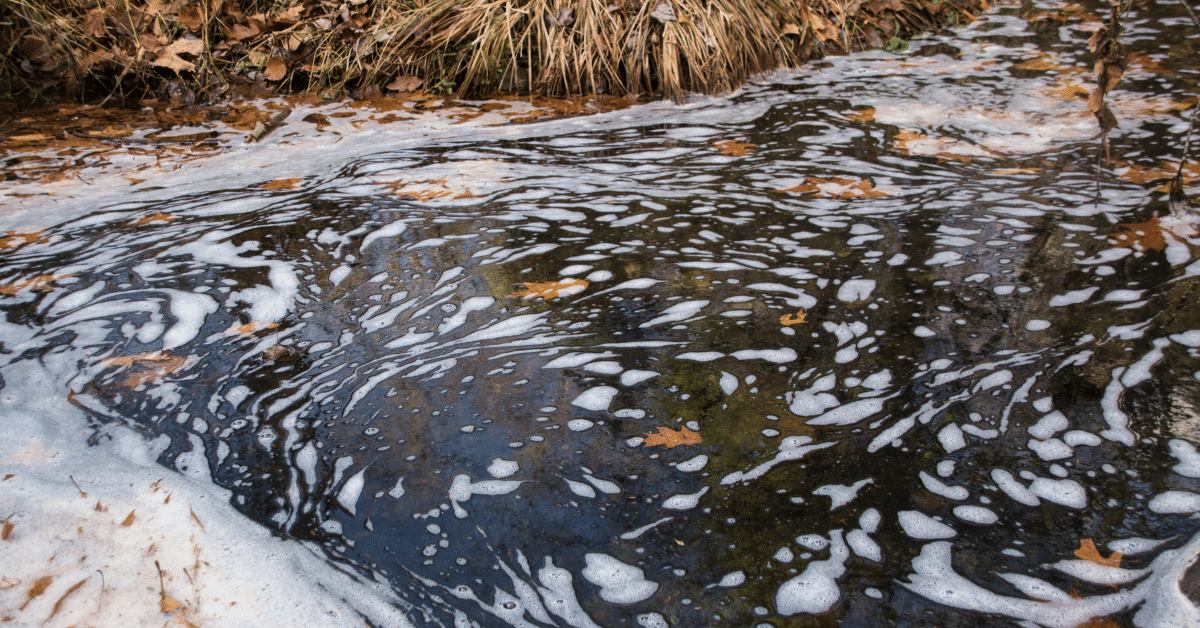
Are State Pollution Discharge Permits Protecting Our Water?
It is evident from recent weather events, particularly a devastating hurricane season, that severe storms are happening more often in Virginia and around the nation. Impervious surfaces, surfaces that do not allow for water absorption into the ground, increase stormwater runoff, which can increase the spread of pollution to Virginia’s waters.
Stormwater Impacts are Increasing
Pollution from stormwater runoff is particularly detrimental when discharged from construction sites and other developed areas. In Virginia, construction sites are required to have a Virginia Pollutant Discharge Elimination System (VPDES) permit, which is implemented by the Virginia Department of Environmental Quality (DEQ). This system was created to follow the regulations set forth in the Clean Water Act, and regulations governing the Environmental Protection Agency’s National Pollutant Discharge Elimination System (NPDES). Thus, the goal of VPDES permits is to regulate the discharge of pollutants to ensure water quality protection.
State Regulators are Failing
DEQ issues VPDES permits for thousands of construction sites across the state to builders who submit a “registration statement,” with basic information about proposed pollution control measures. On the basis of these forms DEQ covers the sites and allows them to discharge pollutants despite real proof that the controls will actually protect water quality.
A major cause of this deficiency is that the State Water Control Board, which is responsible for adopting water quality regulations, issues general permits that cover nearly all construction sites across the state. These general permits require no monitoring of the water discharged from the construction projects or in the affected streams and has failed to conduct its own sampling to assess the stormwater impacts or ensure that water quality standards are met.
Because of this failure to monitor or base permit requirements on real data, there is no question that pollution controls at some sites fail to properly protect water quality. DEQ has estimated that
EPA Must Increase Oversight
The EPA has the primary authority under federal law to enforce the Clean Water Act but has delegated day-to-day permitting authority to the State of Virginia. In its oversight role, EPA has the authority and a responsibility to insist that the state enforce stricter regulatory requirements, but this hasn’t happened as of yet.
Wild Virginia’s Efforts, Your Role
Wild Virginia’s Campaign for Virginia’s Water Future, which we launched in 2020, insists on
reforms to the state’s water quality regulatory system, to make it fully protect our waters and our communities from harmful pollutants, from the construction sites and all other sources. For more information about our demands related to construction stormwater reforms, check out our blog DEQ is Failing to Control Pollution from Construction Sites.
Broader issues related to stormwater pollution, including threats from construction sites, are explained in the Virginia Conservation Network’s publication, Our Common Agenda, a discussion of a range of policy priorities for the coming year. Wild Virginia co-authored the article in that book entitled “Preventing Polluted Stormwater Runoff.”
So, what can you do to help prevent degradation of our waters from stormwater pollution? One easy step is to join Wild Virginia, to keep us working every day to hold our regulators accountable. Another step is to respond to our action alerts, to raise your voice along with ours, to insist that your resources are protected.